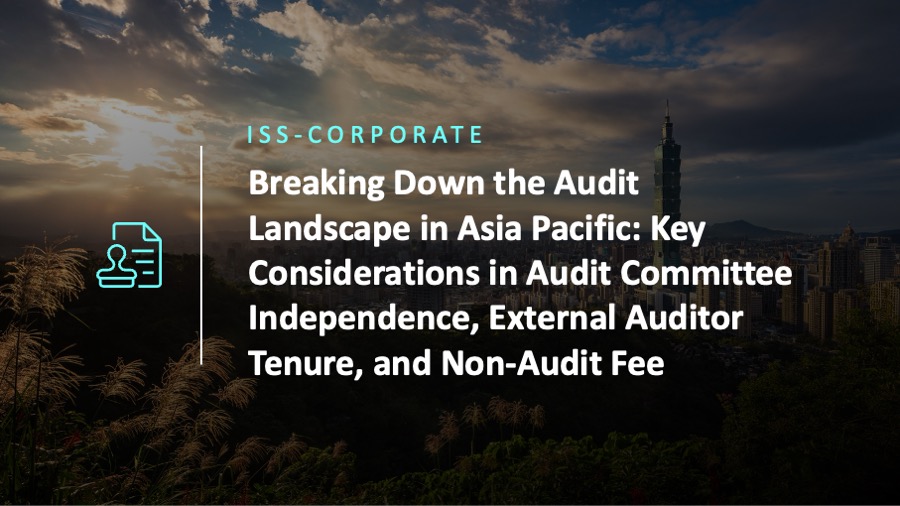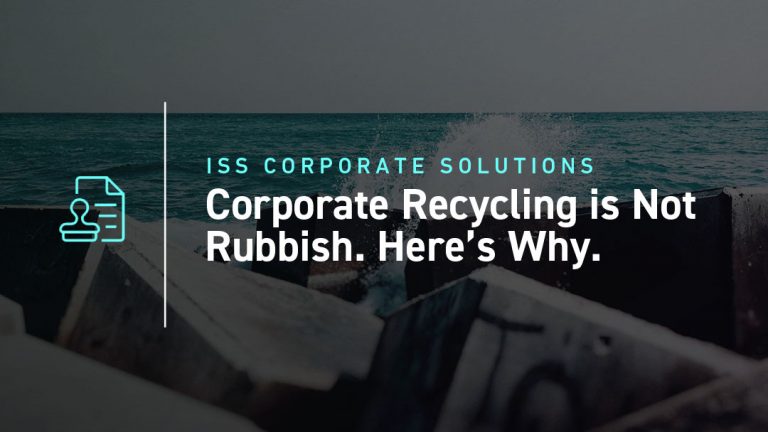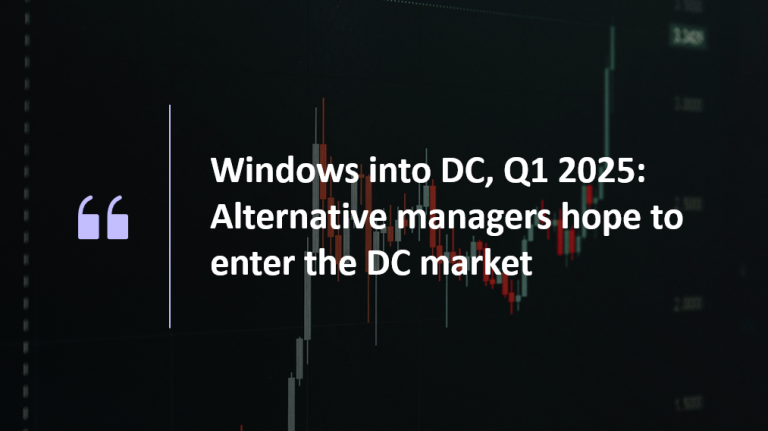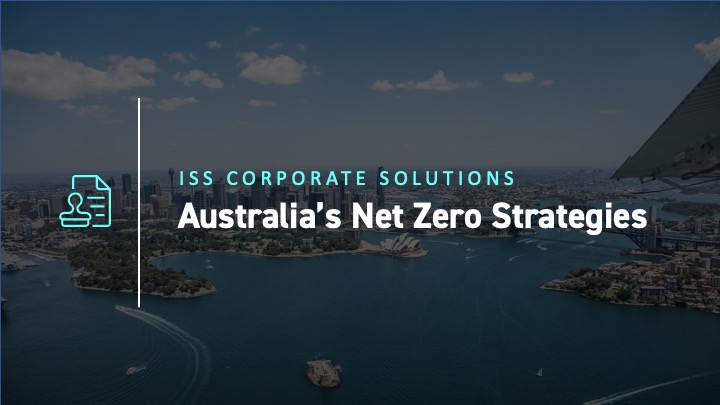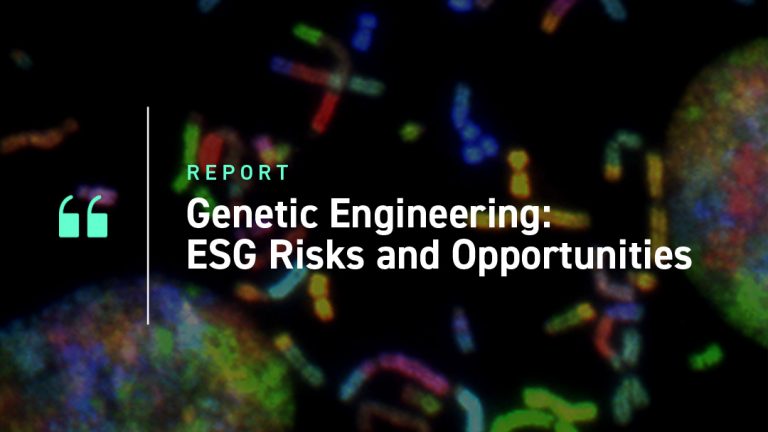Below is an excerpt from ISS-Corporate’s recently released paper “Breaking Down the Audit Landscape in Asia Pacific: Key Considerations in Audit Committee Independence, External Auditor Tenure, and Non-Audit Fee”. The full paper is available for download from ISS-Corporate’s resources page.
INTRODUCTION
The audit landscape of companies across the Asia Pacific (APAC) region is drastically different from common practices in other markets including the S&P 500 index, from the tenure length of external auditors and committee members to their independence and the amount of non-auditing work they do for clients.
While consistent with local regulations, these practices can put APAC companies at odds with the expectations of proxy advisors and investors, who increasingly emphasize on the importance of fully independent audit committees and external auditors.
In this paper, based on ISS Governance QualityScore data[1], we break down the audit landscape in APAC by providing a cross-market comparison and analysis on audit committee composition, external auditor tenure, and the proportion of total fees going to non-audit activities. Markets in focus include China A-Share, Hong Kong, Singapore, Australia, India, and Taiwan.
Investors have long encouraged companies to have fully independent audit committees to effectively oversee their financial reporting, auditing processes and internal control and risk management systems. But there is a growing debate about the potential consequences of employing the same external auditors for so long thatthe quality of their work suffers, and their independence is eroded. Investors are also expressing concern when the proportion of fees that external auditors receive from non-audit activities is higher than what they receive from auditing. These overarching concerns are expressed through investors voting against the re-election of certain audit committee members as well as the ratification of external auditors. While this practice is more scrutinized in the U.S. and Europe, it is less explored in the context of APAC.
KEY TAKEAWAYS
Companies in the APAC region are predominantly driven by their own local jurisdictional expectations. For example, 86% of companies in Taiwan have fully independent audit committees, in line with the Securities and Exchange Act, compared with a range of 19 to 64% in markets including Hong Kong, Singapore, Australia, India, and China A-Share.
Among companies in India, 88% have external audit firms serving fewer than 10 years, as opposed to a range of 15% to 64% in other APAC markets.
Disclosure of the tenure of external auditors is limited as evident by the lack of such details in 83% of companies in Taiwan, followed by Hong Kong, Australia, Singapore, and India at around 40%, 26%, 26%, and 9% respectively. All A-Share companies in China on the other hand have disclosed the tenure of external auditors.
China A-Share is the only market in APAC where non-audit fees are generally kept below 20% of the total compensation paid to external auditors, whereas more than 10% of companies in other APAC markets pay more than 30% of total auditor fees for non-audit work.
[1] The ISS Governance QualityScore global coverage comprises approximately 7,400+ companies in 31 markets, aligning with local market indices, including but not limited to constituents of the S&P 1500, Russell 3000, S&P/ TSX Composite, S&P/ TSX Small Cap, STOXX 600, JPX-Nikkei 400, and so on, augmented with widely held companies. All markets are assigned to an ISS Governance QualityScore region. More information can be found in https://www.issgovernance.com/esg/ratings/governance-qualityscore/.
By:
Lavender Cheung, Corporate Advisor – APAC, ISS-Corporate
Herman Choi, Head of APAC Advisory, ISS-Corporate
